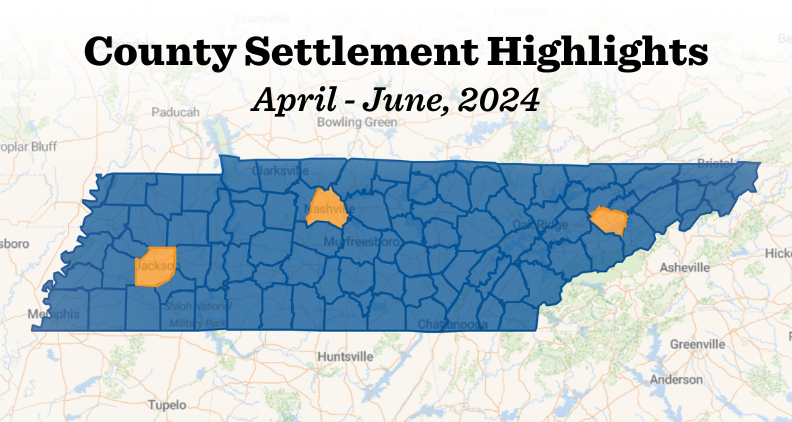Jefferson County Awarded for Their Spending Model
Jefferson County was awarded Excellence in the Application of the Opioid Litigation Principles by Johns Hopkins Bloomberg School of Public Health for using the following evidence-based principles in helping guide the effective spending of their settlement dollars:
1. Spend the Money to Save Lives
2. Use Evidence to Guide Spending
3. Invest in Youth Prevention
4. Focus on Racial Equity
5. Develop a Fair and Transparent Process for Deciding Where to Spend the Funding
Jefferson County established an Advisory Opioid Board composed of content experts and community leaders across various sectors, and formed a partnership with the University of Tennessee Institute for Public Service SMART initiative in the process of deciding how to spend their funding.
“The recognition of Jefferson County Opioid Task force is directly related to all the members of the task force, nonprofits, UT SMART Initiative, and the people of Jefferson County,” said Mark Potts, Jefferson County mayor.
Davidson County Goes “All In” on Mental Health
In Davidson County, the Mental Health Cooperative (MHC) was awarded $2.4 million from the Metro Nashville Public Health Dept., which oversees the county’s opioid abatement funding. These funds will be dispersed over 15 months to create low-threshold access to buprenorphine treatment and will be focused heavily on flexibility and accessibility for individuals seeking substance use treatment. Additionally, the grant will ensure access to transportation and assist with hiring peer support specialists, care coordinators and providers. MHC partners with regional emergency medical services and the Metro Nashville Police Department in the Partners in Care (PIC) and Responders Engaged and Committed to Helping (REACH) programs.
Madison County Opens Funds to Community Grants
The Madison County Opioid Abatement Committee voted to adopt a community grant model for dispersing their opioid settlement funding during their second official meeting held in May. Applications are expected to open later this year, and organizations based in Madison County that work in prevention, treatment, recovery support, harm reduction, and other related services will be welcome to apply. The committee co-chair acknowledged that some treatment providers located in Jackson, the capital of Madison County, also provide services to surrounding counties and the committee will be taking this reality into funding decisions. The committee also voted to withhold 20% of the funds, in line with national guidelines, in order to “ensure funding in the future.”
The committee was commissioned by Madison County Mayor AJ Massey and is chaired by Sheriff Julian Wiser and co-chaired by Deputy Mayor Terica Smith. In this second meeting, they also voted to approve District Attorney Jody Pickens as the ninth member.

